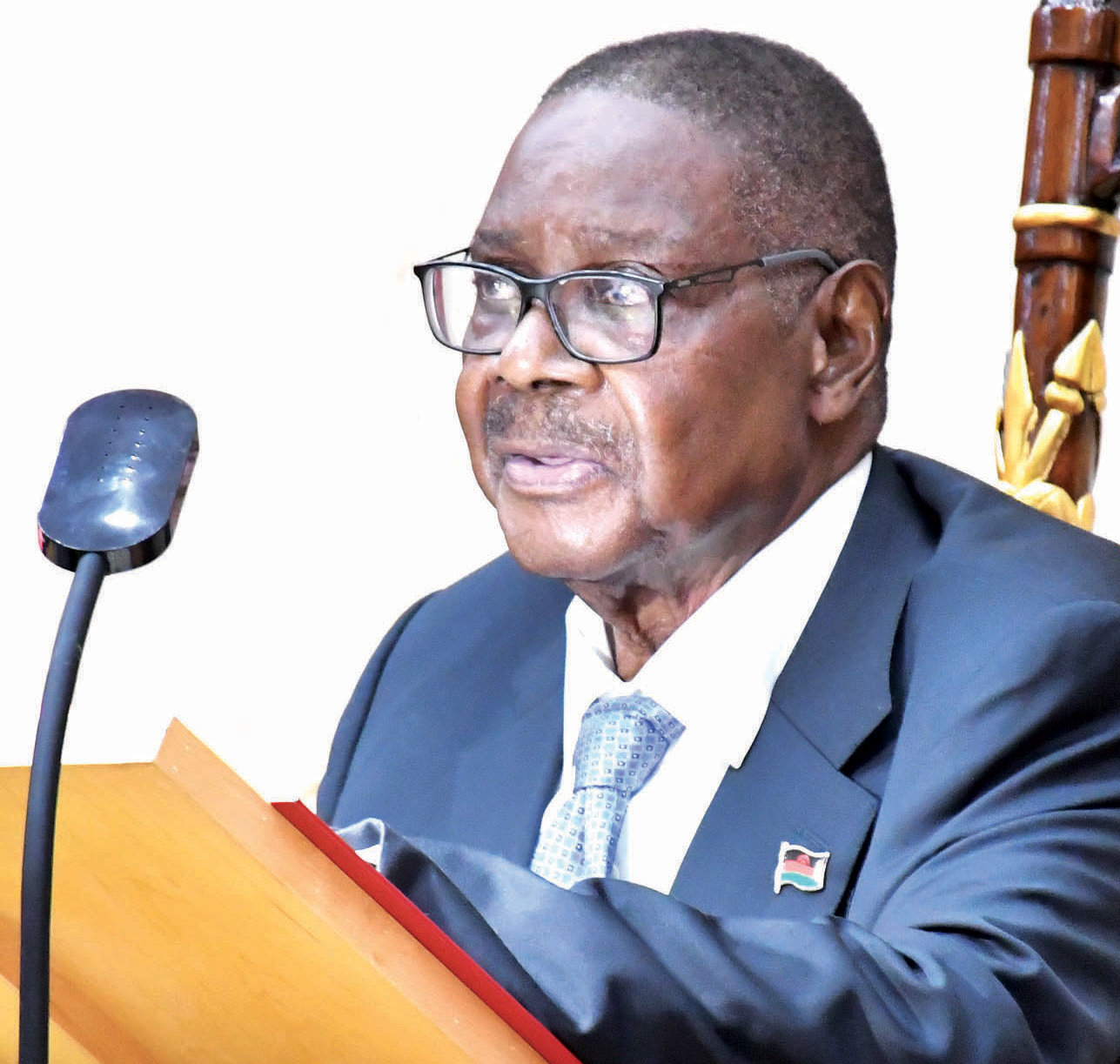Copyright times

President Peter Mutharika Friday pitched economy as key for Malawi to “get everything else right”. Alongside announcing measures to revive the floundering economy and fix other crises, he also outlined a raft of subsidies for social welfare. Mutharika’s statement has lit up the hopes of economists and private sector. But they are also asking: Where will the money for all those subsidies come from? President Peter Mutharika Friday vowed to turn around Malawi’s struggling economy. He pitched economy as key to improvement in all other sectors. “If we get the economy right, we get everything else right. It is a growing economy that will create more jobs for the youth and women,” he said. Grim state of economy Speaking at the opening of the Mid-Year Budget Review Meeting of Parliament in Lilongwe, Mutharika painted a grim picture of the economy, describing it as deeply distressed and weighed down by high inflation, foreign exchange shortages, and weak growth. He said all key macroeconomic indicators were misaligned, with inflation now standing at 28.2 percent, a steep rise from 8.6 percent in 2020. He said the scarcity of foreign exchange had triggered intermittent fuel supply, critical shortages of fertiliser and essential drugs, and price spikes in food, soap, salt, and sugar, exerting immense pressure on households. Mutharika said economic growth remains weak at 2.8 percent of GDP, burdened by public debt of K21.5 trillion and a fiscal deficit of $2.4 trillion. Planned actions He said his administration’s immediate priorities would be to tackle food, fuel and forex crises while restoring integrity and efficiency in public service delivery. He disclosed that his administration has begun talks with financiers on debt treatment and would pursue additional grants and concessional loans to stabilise the situation. Turning to agriculture, the President pledged to stabilise fertiliser supply and prices, announcing plans to establish a local fertiliser manufacturing plant by 2026. “A feasibility study for this plan has already been done,” Mutharika said. He announced that the Farm Input Subsidy Programme (Fisp), will target 1.1 million farmers this year and that subsidised fertiliser price will be K10,000 per 50kg bag, down from K15,000 per bag under the previous administration. But he condemned the sale of counterfeit fertiliser as inhumane, ordering the Malawi Bureau of Standards and the Police to be on alert against fake products during the upcoming Fisp. Mutharika outlined broader industrialisation drive anchored on six key sectors: agro- by processing, textiles, mineral processing, pharmaceuticals, renewable energy, and technology. He said the government would fast track the opening of mines for rare earths, uranium, and graphite, while expanding electricity generation through the Mpatamanga Hydropower Project. To address fuel scarcity, Mutharika pledged to increase foreign exchange allocations for fuel imports and diversify import sources. “Mr. Speaker, Sir, we are still in a fuel crisis. Fuel queues are still with us even today. Malawians voted for us to end this crisis and we will end it,” he said. He added: “We will ensure that fuel imports consistently meet national demand.” He revoked the Government-to-Government fuel procurement system, announcing a return to an open tendering process to enhance transparency and ensure timely deliveries. The President bemoaned the collapse of public service delivery, saying it was a far cry from Malawi’s once shining reputation. He promised reforms to restore integrity in the Civil Service. He also announced plans to install a new heavy-duty passport printer capable of producing 500 booklets per day. Passport printing is expected to resume in Blantyre, Lilongwe, Mzuzu, and Mangochi by year-end. To improve literacy levels in the country, Mutharika said his government has introduced free secondary education by abolishing tuition fees, examination fees, school development fees and identity card fees. “I also want to direct that no public school should be requesting learners to make contributions towards School Development Fund and any other fees, except boarding fees,” he said. Mutharika’s policy pronouncements were widely welcomed by key economic and business stakeholders. Private sector hopeful, asks question Chief Executive Officer of Malawi Confederation of Chambers of Commerce and Industry (MCCCI) Daisy Kambalame said the private sector mouthpiece is pleased to hear that Mutharika wants to make the private sector the engine of economic growth again. “What I really appreciated was the fact that he recognised that the growth of the economy is heavily linked to the private sector. We are the ones that pay the taxes. The private sector is the one that employs people and actually creates opportunities for export and forex generation. “So by recognising that, you can see that he realizes the importance of ensuring that the private sector is growing,” she said. Kambalame said she was impressed with the focus areas Mutharika mentioned in his private sector growth strategy namely agro-processing, textile and apparel, mineral processing, pharmaceuticals, renewable energy and technology. “So you can see that he’s not just looking at Malawi being provider of raw materials, but actually for us to be processing and exporting. So for me, I think it’s something that really gives us confidence. “And as well as the way he set up the ministry, looking at industrialization as one of the key targets and goals. We think that that is actually going to really help boost our economy and achieve the growth that we’re targeting,” Kambalame said. Economics Association of Malawi (Ecama) president Bertha Bangara Chikadza said Mutharika announced many good things such as K5 billion per year per constituency for Constituency Development Fund (CDF), K100 million per year per constituency for youth revolving fund, cutting the price of subsidised fertiliser to K10,000 per bag and free secondary school education. She said the economists’ body would be eager to hear from the Minister of Finance as to where government would get the resources to finance such ambitious announcements. During this meeting of Parliament. Minister of Finance Joseph Mwanamvekha is to present a mid-term budget where the new administration is expected to outline sources of funds for such subsidies.



